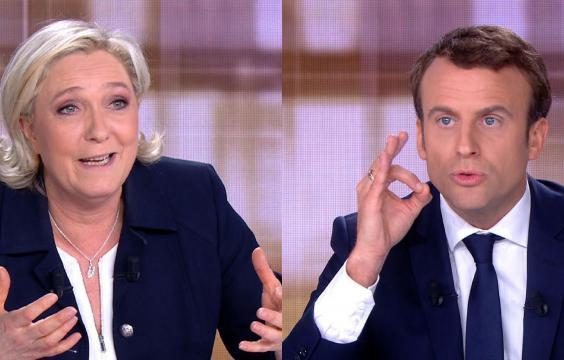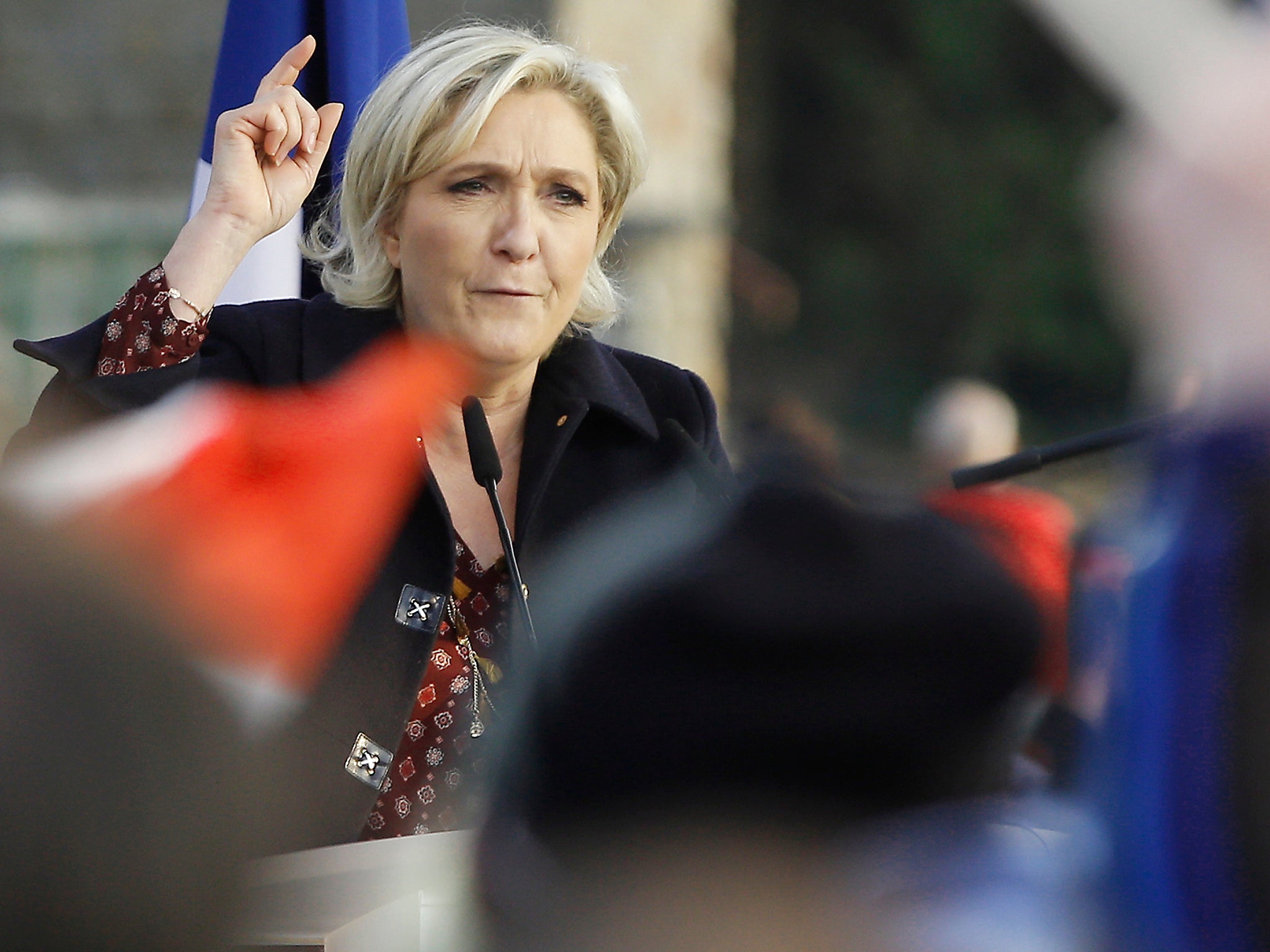France presidential election: Why Sunday's vote is so important
Future of Europe at stake as voters choose between untested centrist Emmanuel Macron and far-right nationalist Marine Le Pen

Your support helps us to tell the story
From reproductive rights to climate change to Big Tech, The Independent is on the ground when the story is developing. Whether it's investigating the financials of Elon Musk's pro-Trump PAC or producing our latest documentary, 'The A Word', which shines a light on the American women fighting for reproductive rights, we know how important it is to parse out the facts from the messaging.
At such a critical moment in US history, we need reporters on the ground. Your donation allows us to keep sending journalists to speak to both sides of the story.
The Independent is trusted by Americans across the entire political spectrum. And unlike many other quality news outlets, we choose not to lock Americans out of our reporting and analysis with paywalls. We believe quality journalism should be available to everyone, paid for by those who can afford it.
Your support makes all the difference.Whatever the result of France's presidential election, the choice will resonate far beyond France's borders, from extremist strongholds in Syria to Hong Kong trading floors and the halls of the UN Security Council.
It could be bigger than Brexit — the future of Europe is at stake as disenchanted French voters choose between untested centrist Emmanuel Macron and far-right nationalist Marine Le Pen in Sunday's presidential runoff.
Here are a few reasons why this race matters:
Financial markets have watched this election with exceptional attention, jittery over Le Pen's dreams of pulling France out of the European Union and its shared euro currency. The market mood has buoyed in recent days as polls show the chance of a Le Pen victory receding, but the prospect of a "Frexit" would be dire.
Far worse than Britain's exit from the European Union, France's departure from either the EU or the euro could spell death for the idea of European economic unity, which emerged from the bloodshed of World War II. France is a founding member of the EU, and its main driver along with former rival Germany.
Le Pen has waffled on how exactly she might deal with the EU as French president, but tapped into a widespread misunderstanding of the bloc, blaming it for myriad economic and security woes. She also blames free trade pacts for killing French jobs and wants to renegotiate them, which would cause a financial tangle for the rest of the EU and France's trade partners.
A Frexit could herald controls on money transfers, capital flight, a plague of defaults and lawsuits on bonds and contracts. Le Pen's team, however, downplays apocalyptic scenarios, arguing that the euro, now used by 19 countries, is headed for a breakup eventually anyway.
Macron countered with a campaign video this week showing British voters regretting their vote to leave the EU, saying they didn't realise what they were getting into — and American voters regretting their vote for Trump.

If Le Pen pulls off a surprise win, that would be a resounding victory for the populist wave reflected by the votes for President Donald Trump and Macron is an unabashed progressive who embraces globalisation and championed startups and Uber-like car services as France's economy minister — angering taxi drivers and other workers who feel left behind.
He has framed himself as a bulwark against Trump's protectionism — and he won an unusually high-profile endorsement this week from former U.S. President Barack Obama.
Even if Le Pen loses, however, she has proven that populism is a powerful force in France that could make it hard for Macron to accomplish his goals even if he wins. Many who plan to vote for Macron on Sunday see him as the lesser of two evils as opposed to a saviour.

France is a nuclear power with a permanent seat on the U.N. Security Council and tens of thousands of troops scattered around the world. It is also a key U.S. ally in the campaign against the Islamic State group. While its diplomatic strength has faded, Macron could bring new energy to French foreign policy — and firebrand Le Pen would be sure to make France's voice heard in world affairs.
Macron would likely keep up the French operations against extremists in Iraq and Syria and Africa's Sahel region — and keep up pressure on Russia over Ukraine and its actions to bolster Syrian President Bashar Assad.
Le Pen, on the other hand, firmly backs Assad and has distanced herself from Trump over recent U.S. air strikes targeting Assad's regime. Le Pen also met recently with Russian President Vladimir Putin in Moscow and would push for lifting sanctions against Russia over the conflict in Ukraine.
Associated Press
Join our commenting forum
Join thought-provoking conversations, follow other Independent readers and see their replies
Comments